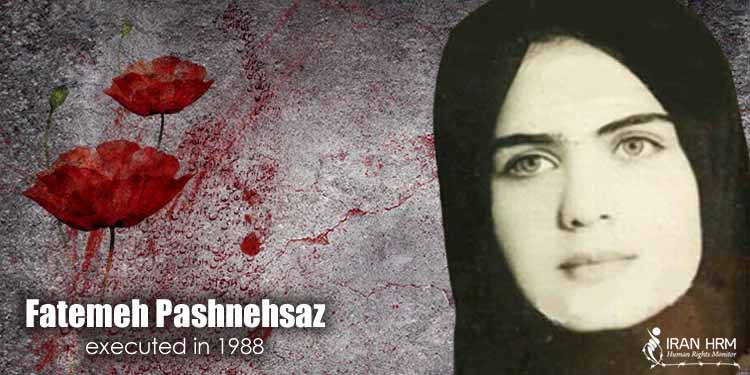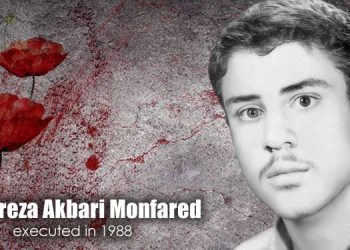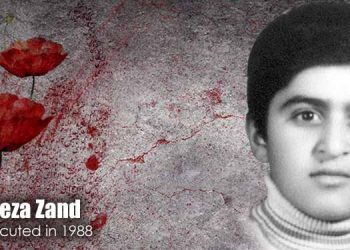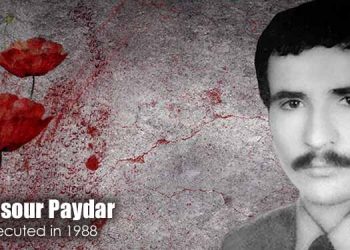Fatemeh Pashnehsaz (Tahmineh), was born in Shiraz in 1967. She continued her education until high school graduation.
She was arrested along with her mother, Zahra Azizi, in the fall of 1987 when they tried to contact the People’s Mojahedin Organization of Iran (PMOI/MEK).
They were both interrogated by the Revolutionary Guards Corpse agents. The IRGC forces tortured them to obtain information about their friends.
Fatemeh and her mother were transferred to Adelabad Prison in Shiraz.
In 1988, the clerical regime executed both, Fatemeh and her mother, for adhering to their cause.
Fatemeh and her mother were executed simultaneously in Adelabad Prison in Shiraz.
Fatemeh was 21 years old at the time of the execution.
Based on eyewitness accounts of survivors, the massacre had been prepared for from at least a year before. The order for the massacre came from Khomeini directly in the form of a religious decree (fatwa), calling for the execution of all who remained steadfast in their support for the PMOI.
A so-called Amnesty Commission (better known among prisoners as the Death Commission) asked a simple question from every prisoner: do you still support the PMOI/MEK? Those who answered yes were executed, even if they had already finished serving their original sentence. None of the victims had any new activities while in detention and many of them were 15 or 16 years of age at the time of original arrest and prosecution.
1988 Massacre of Political Prisoners in Iran
A Crime Against Humanity
The Facts
- In 1988, the Iranian regime massacred 30,000 political prisoners.
- The executions took place based on a fatwa by Supreme Leader Khomeini.
- Three-member commissions known as ‘Death Commissions’ were formed across Iran sending political prisoners who refused to abandon their beliefs to execution.
- The victims were buried in secret mass graves.
- The perpetrators continue to enjoy impunity.
- Since 2016, the names of nearly 100 ‘Death Commission’ members have been revealed. Many still hold senior positions in the Iranian judiciary or government.
The Human Rights Council needs to conduct an international investigation into the 1988 massacre. This would be the first step to end the impunity for the officials, agents and those who ordered the largest political crime of the century.
Khamenei and other leaders of the regime need to be prosecuted and face justice for committing crimes against humanity.











